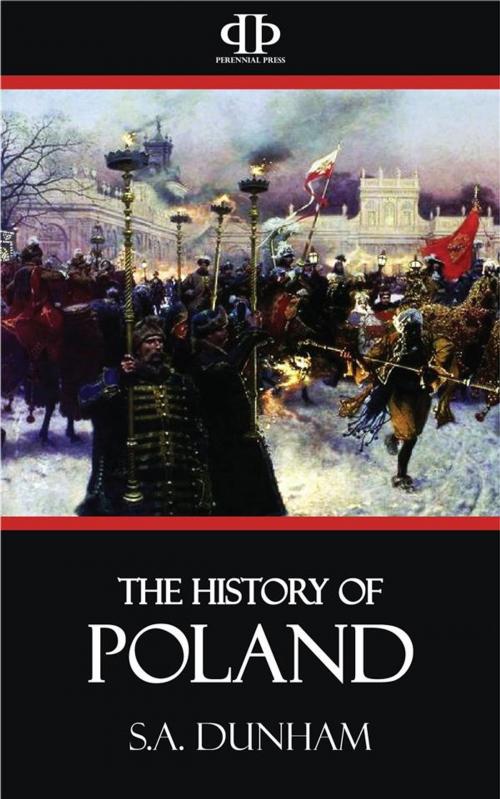| Author: | S.A. Dunham | ISBN: | 9781518319204 |
| Publisher: | Perennial Press | Publication: | November 27, 2015 |
| Imprint: | Language: | English |
| Author: | S.A. Dunham |
| ISBN: | 9781518319204 |
| Publisher: | Perennial Press |
| Publication: | November 27, 2015 |
| Imprint: | |
| Language: | English |
Amidst the incessant influx of the Asiatic nations into Europe, during the slow decline of the Roman empire, and the migrations occasioned by their arrival, we should vainly attempt to trace the descent of the Poles. Whether they are derived from the Sarmatians, who, though likewise of Asiatic origin, were located on both sides of the Vistula long before the irruptions of the kindred barbarians, or from some horde of the latter, or, a still more probable hypothesis, from an amalgamation of the natives and new comers, must for ever remain doubtful. All that we can know with certainty is, that they formed part of the great Slavonic family which stretched from the Baltic to the Adriatic, and from the Elbe to the mouth of the Borysthenes. As vainly should we endeavour, from historic testimony alone, to ascertain the origin of this generic term slave, and the universality of its application. Conjecture may tell us, that as some of the more powerful tribes adopted it to denote their success in arms (its signification is glorious), other tribes, conceiving that their bravery entitled them to the same enviable appellation, assumed it likewise. It might thus become the common denomination of the old and new inhabitants, of the victors and the vanquished; the more readily, as most of the tribes comprehended under it well knew that the same cradle had once contained them. Other people, indeed, as the Huns or the Avars, subsequently arrived from more remote regions of Asia, and in the places where they forcibly settled, introduced a considerable modification of customs and of language: hence the diversity in both among the Slavonic nations—a diversity which has induced some writers to deny the identity of their common origin. But as, in the silence of history, affinity of language will best explain the kindred of nations, and will best assist us to trace their migrations, no fact can be more indisputable than that most of the tribes included in the generic term slavi were derived from the same common source, however various the respective periods of their arrival, and whatever changes were in consequence produced by struggles with the nations, by intestine wars, and by the irruption of other hordes dissimilar in manners and in speech. Between the Pole and the Russian is this kindred relation striking; and though it is fainter among the Hungarians from their incorporation with the followers of Attila, and among the Bohemians, from their long intercourse with the Teutonic nations, it is yet easily discernible.
Of these Slavonic tribes, those which occupied the country bounded by Prussia and the Carpathian mountains, by the Bug and the Oder those especially who were located on both banks of the Vistula were the progenitors of the present Poles. The word Pole is not older than the tenth century, and seems to have been originally applied, not so much to the people as to the region they inhabited; polska in the Slavonic tongue signifying a level field or plain...
Amidst the incessant influx of the Asiatic nations into Europe, during the slow decline of the Roman empire, and the migrations occasioned by their arrival, we should vainly attempt to trace the descent of the Poles. Whether they are derived from the Sarmatians, who, though likewise of Asiatic origin, were located on both sides of the Vistula long before the irruptions of the kindred barbarians, or from some horde of the latter, or, a still more probable hypothesis, from an amalgamation of the natives and new comers, must for ever remain doubtful. All that we can know with certainty is, that they formed part of the great Slavonic family which stretched from the Baltic to the Adriatic, and from the Elbe to the mouth of the Borysthenes. As vainly should we endeavour, from historic testimony alone, to ascertain the origin of this generic term slave, and the universality of its application. Conjecture may tell us, that as some of the more powerful tribes adopted it to denote their success in arms (its signification is glorious), other tribes, conceiving that their bravery entitled them to the same enviable appellation, assumed it likewise. It might thus become the common denomination of the old and new inhabitants, of the victors and the vanquished; the more readily, as most of the tribes comprehended under it well knew that the same cradle had once contained them. Other people, indeed, as the Huns or the Avars, subsequently arrived from more remote regions of Asia, and in the places where they forcibly settled, introduced a considerable modification of customs and of language: hence the diversity in both among the Slavonic nations—a diversity which has induced some writers to deny the identity of their common origin. But as, in the silence of history, affinity of language will best explain the kindred of nations, and will best assist us to trace their migrations, no fact can be more indisputable than that most of the tribes included in the generic term slavi were derived from the same common source, however various the respective periods of their arrival, and whatever changes were in consequence produced by struggles with the nations, by intestine wars, and by the irruption of other hordes dissimilar in manners and in speech. Between the Pole and the Russian is this kindred relation striking; and though it is fainter among the Hungarians from their incorporation with the followers of Attila, and among the Bohemians, from their long intercourse with the Teutonic nations, it is yet easily discernible.
Of these Slavonic tribes, those which occupied the country bounded by Prussia and the Carpathian mountains, by the Bug and the Oder those especially who were located on both banks of the Vistula were the progenitors of the present Poles. The word Pole is not older than the tenth century, and seems to have been originally applied, not so much to the people as to the region they inhabited; polska in the Slavonic tongue signifying a level field or plain...















